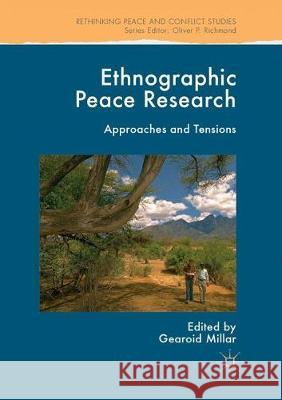Ethnographic Peace Research: Approaches and Tensions » książka
topmenu
Ethnographic Peace Research: Approaches and Tensions
ISBN-13: 9783319880556 / Angielski / Miękka / 2018 / 285 str.
Kategorie BISAC:
Wydawca:
Palgrave MacMillan
Seria wydawnicza:
Język:
Angielski
ISBN-13:
9783319880556
Rok wydania:
2018
Wydanie:
Softcover Repri
Ilość stron:
285
Oprawa:
Miękka
Wolumenów:
01
Dodatkowe informacje:
Wydanie ilustrowane











